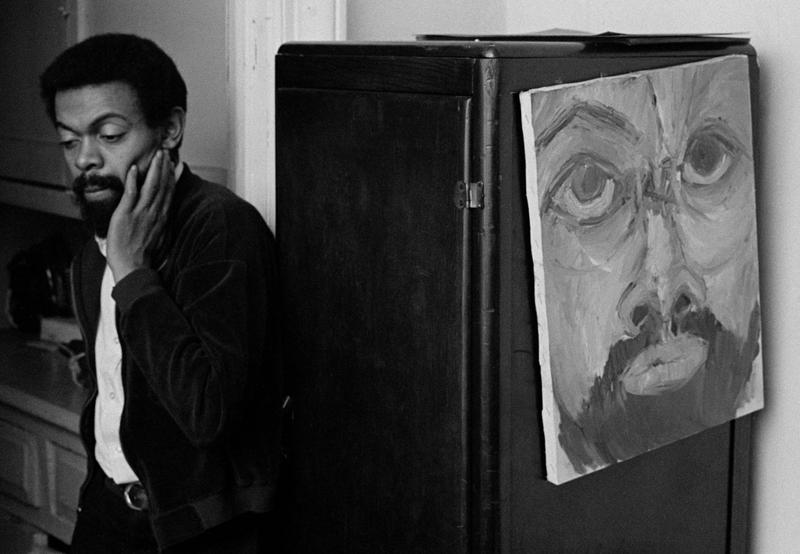

Amiri Baraka The Dutchman Pdf Full
Amiri Baraka (LeRoi Jones) (b. 1934)Contributing Editor: Marcellette WilliamsClassroom Issues and StrategiesThe typical problems in teaching Baraka's poetry have to do with whathas been called his 'unevenness'--perhaps more accurately attributableto the tension inherent in balancing Baraka's role as poet and his roleas activist--and the strident tone of some of his poems--also related tohis political activism. Both problems are probably best addressed directly by inviting the studentsto describe or characterize their impressions of the impetus for the poemsas they read them (stressing 'their reading' is critical andcomplements what current reading theory regards as the essential role ofthe reader in any reading paradigm), then asking them to substantiate textuallythose impressions. Such a strategy finesses the temptation to engage ina definitive debate of the politics of the time as the genesis and raisond'être of Baraka's poetry. Further, such a strategy allows studentsto explore the aesthetics as well as the politics of his poetry and understandbetter the inter/inner-(con)textuality of the two. Because the 'sound' of Baraka's poetry is essential to texturingor fleshing out its meaning, readings aloud should contribute to discussionsas well as to the introduction to his work. Students respond almost always to the intimacy of Baraka's poems; sometimesthey are offended by that intimacy, and this posture often leads to discussionsof poetic necessity. Students also raise the question of the paradox ofBaraka's clear aesthetic debts and his vehemence in trying to tear downthat very Western ideal. Major Themes, Historical Perspectives, and Personal IssuesIt is important to emphasize the themes of death and despair in theearly poems, moral and social corruption with its concomitant decryingof Western values and ethics, the struggle against self-hatred, a growingethnic awareness, and the beneficent view of and creative energy occasionedby 'black magic.' The issues to focus on historically involve the racial tenor of thedecades represented by his poetic output as well as the poetic aestheticsof imagism, projectivism, and Dadaism--all of which influenced Baraka tosome extent. From the perspective of personal issues, his bohemian acquaintancesof the fifties (Charles Olsonand Allen Ginsberg,for example), his marriage to Hettie Cohen, his visit to Cuba, his namechange, the death of MalcolmX, and his Obie for The Dutchman are all important considerations. Significant Form, Style, or Artistic ConventionsIt is appropriate to refer to the question of 'school,' hereagain in the context of the poet's use of sound and images as the articulationof form and meaning. I would further encourage the students to pay carefulattention to Baraka's use of repetition--at the lexical, syntactic, semantic,and phonological levels. What is its effect? Does it inform? If so, how?Are there aspects of the poems one might regard as transformations? Ifso, what might they be? What effect might they have? How might they functionin the poem? Baraka's consideration of the significance of 'roots' appearsto evolve in his poetry. How might you characterize it? Original AudienceA consideration of progenitors and progeny provides a convenient pointof departure for a discussion of audience for Baraka's work. Students interestedin imagism and projectivism, for example, will certainly value Baraka'sefforts as an effective use of those aesthetic doctrines toward the shapingof poetry of revolution appropriate for the time. Baraka's influence is apparent in the poetry of SoniaSanchez and Ntozake Shange. What aspects of this influence, if any,might contribute to considerations of audience with regard to time andpoetry? Comparisons, Contrasts, ConnectionsIn considering Baraka's conscious use of language for poetic effect,comparisons with WilliamCarlos Williams (for the use of the vernacular and the idiom) and withEzra Pound (for its communicativefocus) are appropriate. Sometimes in discussions of Baraka's early poems,the criticism compares them in tone and theme--moral decay and social disillusionment--withT. S. Eliot'sTheWaste Land. Questions for Reading and Discussion/Approaches to Writing1. Frank Smith discusses the 'behind the eyeball' informationa reader brings to text. Louise Rosenblatt discusses the expectations andexperiences a reader brings to 'transact' or negotiate meaningwith text. Given these considerations of the reader, prediscussion questionsmight be designed to elicit from the reader whatever information or preconceptionshe/she has about the author and/or his work. If the students are totallyunfamiliar with Baraka, then questions eliciting experiential responsesto the broad issues of theme or technique would be appropriate--'What,if anything, do the terms social fragmentation and/or moral decay meanto you?' 'What would you imagine as a poetic attack on society?Or a poetic ethnic response to a dead or dying society?' 2. Writing assignments and topics for the students are derived fromthe assumption that as readers their participation is essential to meaning.Topics are not generally prescribed but, rather, derived from the questionsabout and interest in the author and his (Baraka's) work. These assignmentssometimes take the form of poetic responses, critical essays, or 'dialogues'with Baraka. BibliographyBrown, Lloyd W. 'Baraka as Poet.' In Lloyd W. Brown's AmiriBaraka. Boston: Twayne Publishers, 1980, 104-35, Chapter 5. Harris, William J. 'The Transformed Poem.' In The Poetryand Poetics of Amiri Baraka: The Jazz Aesthetic. Columbia: Universityof Missouri Press, 1985, 91-121. Lacey, Henry. 'Die Schwartze Bohemien: 'The Terrible Disorder ofa Young Man' ' and 'Imamu.' In To Raise, Destroy, andCreate. Troy, New York: The Whitstone Publishing Company, 1981, 1-42,93-162. Sollors, Werner. 'Who Substitutes for the Dead Lecturer?: Poetryof the Early 1960s.' In Amiri Baraka/LeRoi Jones: The Quest fora Populist Modernism. New York: Columbia University Press, 1978, 83-95. |
Amiri Baraka The Dutchman Pdf Online
To find more books about dutchman amiri baraka, you can use related keywords: Pdf Files On Amiri Baraka You can download PDF versions of the user's. Articles:. “Amiri Baraka’s Uncle Tom” in Approaches to Teaching Amiri Baraka’s Dutchman Eds. .Baraka, Amiri Dutchman Behn, Aphra Rover, The Capek, Karel R.U.R. Chekhov, Anton Bear, The Chekhov, Anton Cherry Orchard, The Chekhov, Anton Seagull.